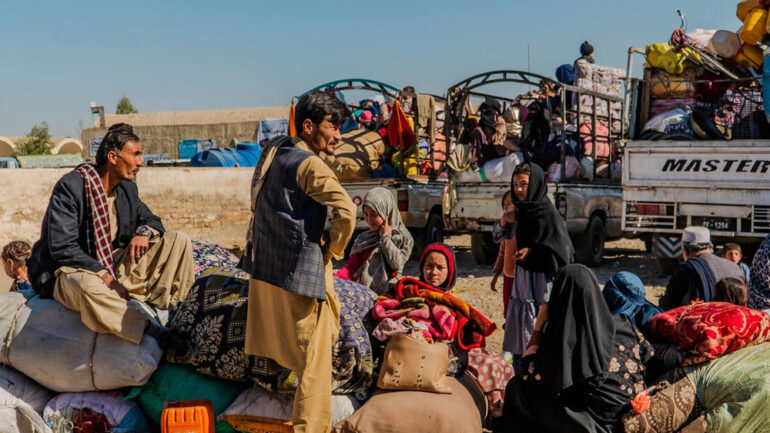
By: Hafiz ullah storai sherani
Pakistan has issued a stark directive to deport approximately 1.4 million Afghan refugees holding Proof of Registration (PoR) cards, intensifying its controversial “Illegal Foreigners’ Repatriation Plan” launched in October 2023. The decision, announced through government notices on August 1, 2025, in Khyber Pakhtunkhwa, follows the expiration of PoR cards on June 30, 2025, leaving families who have lived in Pakistan for decades facing an uncertain future.
A Community in Crisis
The PoR cards, issued by the United Nations High Commissioner for Refugees (UNHCR) in 2007, provided legal protection to 1.4 million Afghan refugees. Their expiration, without renewal, has stripped these individuals of their legal status. The Pakistani Ministry of Interior has instructed provincial security forces to enforce deportations, marking the third phase of a policy that initially targeted undocumented Afghans and those with Afghan Citizen Cards (ACC).
In Peshawar, home to many Afghan refugees, the news has sparked fear and desperation. Ahmad Khan, a shopkeeper in Board Bazaar who has lived in Pakistan for nearly 30 years, shared his distress: “We’re anxious about our kids’ schooling and our livelihoods. Going back to Afghanistan is overwhelming. We plead for international support to let us remain.” Noorullah Rahimi, another long-time resident, added, “Many of us have built homes and businesses here. Leaving everything behind is tough. We request time to depart respectfully.”
A Hardening Policy
The deportation order follows a July 18, 2025, statement by Interior Minister Mohsin Naqvi, who confirmed that PoR cards would not be extended. Although Foreign Ministry spokesperson Shafqat Ali Khan suggested a week earlier that no final decision had been made, the August 1 notices indicate a firm resolve. A Balochistan official, speaking to international media, verified that the Interior Ministry has directed security forces to act.
Pakistan’s repatriation plan has already forced over one million Afghans to return since 2023, with the UN’s Office for the Coordination of Humanitarian Affairs (OCHA) reporting approximately 340,000 returns between January and mid-July 2025. The total number of returns, including voluntary and forced, has reached 1.08 million by June 2025, according to UN data.
Humanitarian Concerns
The policy has drawn sharp criticism from human rights groups. Amnesty International has called for Pakistan to extend PoR card validity, warning that forced returns to Taliban-controlled Afghanistan violate international law, which prohibits sending refugees to places where they face persecution. The Taliban’s restrictions on women’s rights, including bans on education for girls over 12 and limits on employment, heighten risks for returnees. UNHCR has cautioned that mass deportations could destabilize the region, given Afghanistan’s ongoing economic crisis and recent natural disasters.
A Call for Action
As families brace for displacement, advocates urge Pakistan to reconsider its stance and grant refugees time to prepare. The international community, including the UN and Western nations, faces pressure to expedite resettlement programs for vulnerable Afghans, such as activists and journalists, who face severe risks under Taliban rule.
For refugees like Ahmad and Noorullah, the coming weeks are fraught with uncertainty. “This is our home,” Noorullah said. “We just want an opportunity to plan our next steps.”

